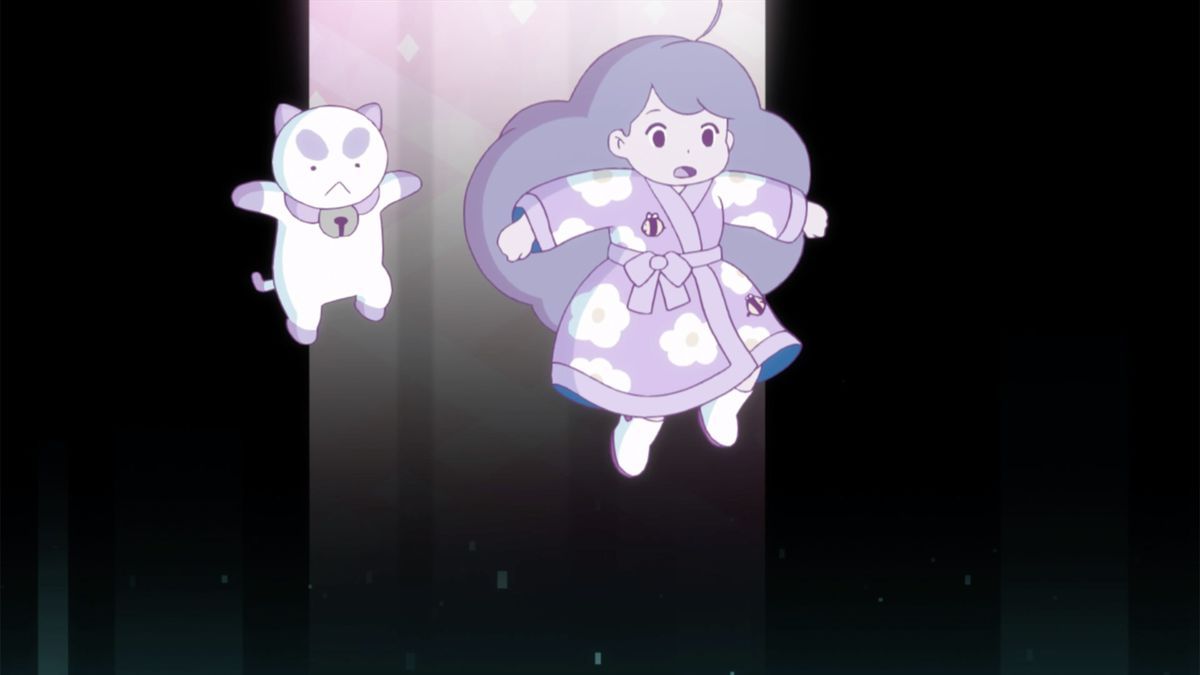The simple fact animation for adults even exists can still come as a surprise for some people, and cause a disgruntled shrug in others.
Though it’s been around for decades, it so often gets a bad rap for being grotesque looking, and full of immature jokes – y’know, stuff that is more likely to appeal to kids. And the most popular titles in this market, more often than not, do prove that to be true.
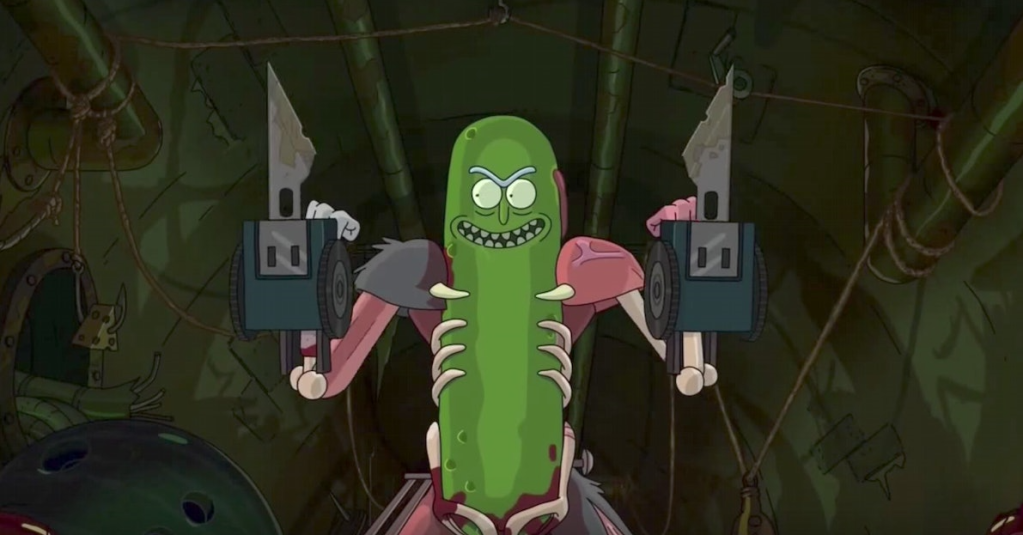
Animated antithesis
Bee and Puppycat is Netflix-owned reboot of the YouTube animated series by Natasha Allegri. The history of how it came to be is kind of complicated, but in a nutshell: it’s a fantasy/sci-fi animation aimed at adults that gained so much online popularity that, despite being almost cancelled forever, has found a new home one the streaming giant.
Featuring the voicework of Allyn Rachel, Kent Osborne and Alexander James Rodrqiguez, Puppycat is a colourful and whimsical show full of sweet, memorable characters and touching motifs about losing focus in adulthood. It’s also gorgeous to look at and technically can be watched by any age, though the themes may perplex youngsters.
Don’t get me wrong – I’m huge fan of Bojack Horseman, Tuca and Bertie and Bob’s Burgers, all adult-aimed shows that do what they do very well. But I don’t think animation aimed at adults always has to be edgy or explicit to appeal to its target audience (looking at you Rick & Morty, Family Guy, South Park etc etc). Adults can have fantastical whimsy, too! We deserve an escape!
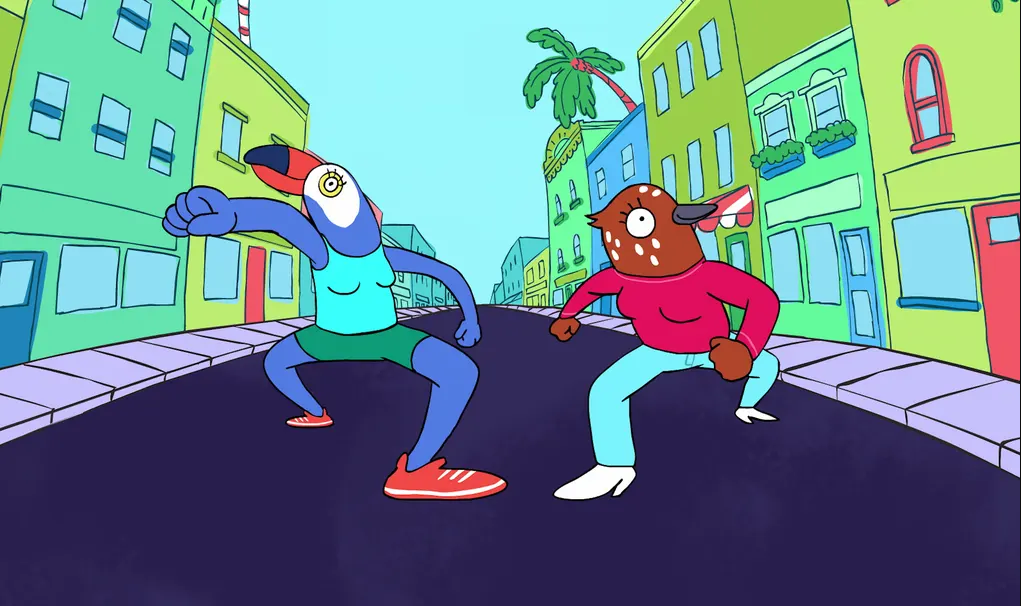
Part Adventure Time, part Steven Universe, but with a focus on burnt-out adults who no longer know what to do with their lives, Bee and Puppycat is a randomcore balm, and I love it.
Read: What the dog? Why Bluey is censored in the US
Bee sides
Here’s the low-down on the plot: Bee, a 20-something woman, is fired from her job at the cat café after it nearly burns down. Finding herself mentally adrift, she wishes out loud for a cat of her own that she can be responsible for. Suddenly, the sky literally opens up and drops a creature into her lap – but it’s not quite a cat, and not quite a dog, either. It’s a Puppycat!
Not content with being a simple house pet, Puppycat forces Bee to get a job the only way he knows how: by signing her up at the intergalactic temp agency. From there, she’ll be assigned to random jobs that require a range of skills beyond her earthly understanding.
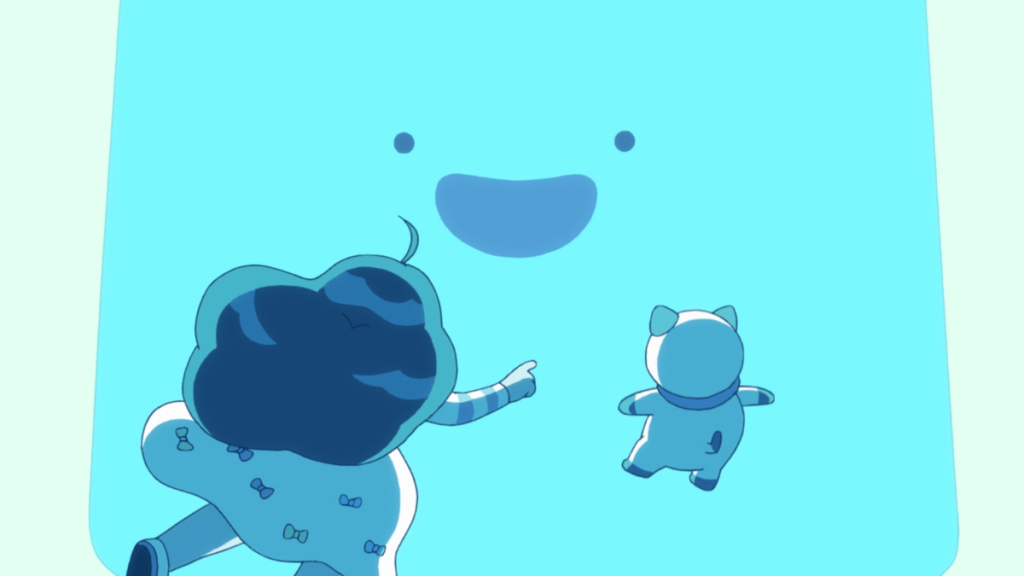
Let me stake my claim now: I was a fan of Bee and Puppycat before it got big – literally when it was just two episodes on YouTube and a tiny following. So, I’m an early adopter, or a Puppycat hipster, or whatever you want to call me. Nerd will suffice. Point being, I’ve been missing this funky little show for years, and had always hoped it would get a full season and a massive audience. I guess that actually makes me the opposite of a hipster (‘this would be cooler if it went more mainstream, man’). Whatever.
Now with 16 episodes out on Netflix (they dropped on 6 September), it looks like it’s finally hit the big time.
Up until recently, the majority of Netflix-based animations for adults have been pretty crass. Not that there’s anything wrong with that – it has its place, and it can be uproariously funny in a way that is both mature and thoughtful. It’s just that this particular corner of the genre is so often taken over by shows that lean so hard into their crassness you wonder which adults exactly are enjoying them more than, say, teenage bullies and incels.
Meanwhile in Japan
If you’ve been brave enough to venture over into the Anime section (and you should!), you’ll find a wide range of adult-aimed cartoons. Yes, a majority of them get slapped with an MA or R rating because of explicit sexual imagery and bloody violence, and that can be pretty much par for the course, but among the titles are some real gems.
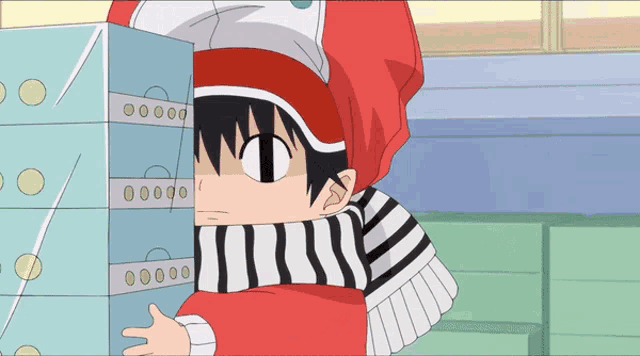
Kotaro Lives Alone comes to mind – a series about a four year old boy who moves into a ramshackle apartment all on his own, and befriends the broke manga artist who lives next door. Its absurd premise quickly becomes a heartwarming (and heartbreaking) tale about poverty, child abandonment, and the loneliness of city living. It’s beautifully drawn, is almost as morally complex as a Hirokazu Kore-eda movie (y’know, if he liked to get a little silly), and will make you emotionally fragile like one too.
Bee and Puppycat‘s emotional core is buried a little underneath its stream-of-consciousness layers, but that’s exactly how I’d describe the protagonist, so it’s apt.
Might Netflix commissioning such a show as Bee and Puppycat signify a shift in Western animation for adults? A shift that steers it into more complex, beautiful, less easily-pigeonholed series? I hope so.
Bee and Puppycat is currently streaming all 16 episodes on Netflix.
